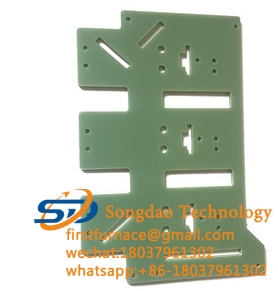- 30
- Oct
What are the application characteristics of the insulating board?
What are the application characteristics of the insulating board?
Insulation board is also called epoxy resin board, epoxy fiberglass board, 3240 epoxy fiberglass board, which is characterized by strong adhesion and strong shrinkage. It is suitable for mechanical, electrical and electronic components with high insulation, with high mechanical and dielectric properties, as well as good heat resistance and moisture resistance.
Do some of our customers ask about the grades of epoxy resin insulation boards? Explain them in detail. Under normal circumstances, customers often mention B, F, H… these grades are actually the heat-resistant temperature grades of insulating materials.

Insulating board is a kind of insulating material, and its insulating performance is very closely related to temperature. The higher the temperature, the worse the insulating performance. In order to ensure the insulation strength, each insulating material has an appropriate allowable working temperature, which requires us When using an insulating rubber sheet, you must control a suitable temperature. This is also a good way to maintain the rubber sheet, because at high temperatures, not only the insulation performance of the rubber sheet is not good, but the rubber sheet will also quickly age.
The relationship between the temperature of the epoxy resin insulation board and the insulation temperature class: According to the degree of heat resistance, the insulation materials are divided into Y, A, E, B, F, H, C and other levels. For example, the allowable working temperature of Class A insulating materials is 105°C, and most of the insulating materials used in distribution transformers and motors generally belong to Class A, such as epoxy resin insulation boards and so on. Insulation temperature class Class A Class E Class B Class F Class H Permissible temperature (℃) 105 120 130 155 180 Winding temperature rise limit (K) 60 75 80 100 125 Performance reference temperature (℃) 80 95 100 120 145c
